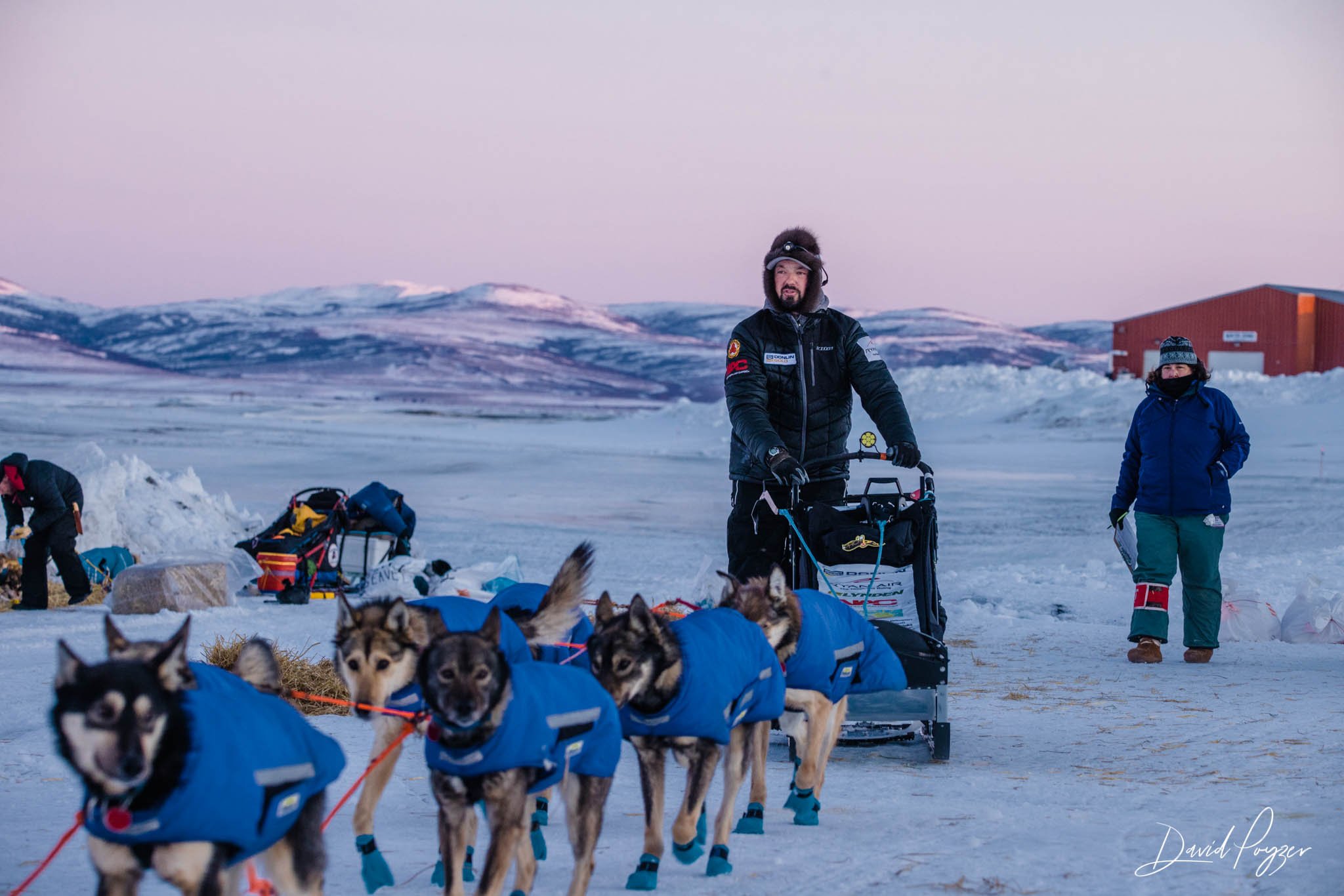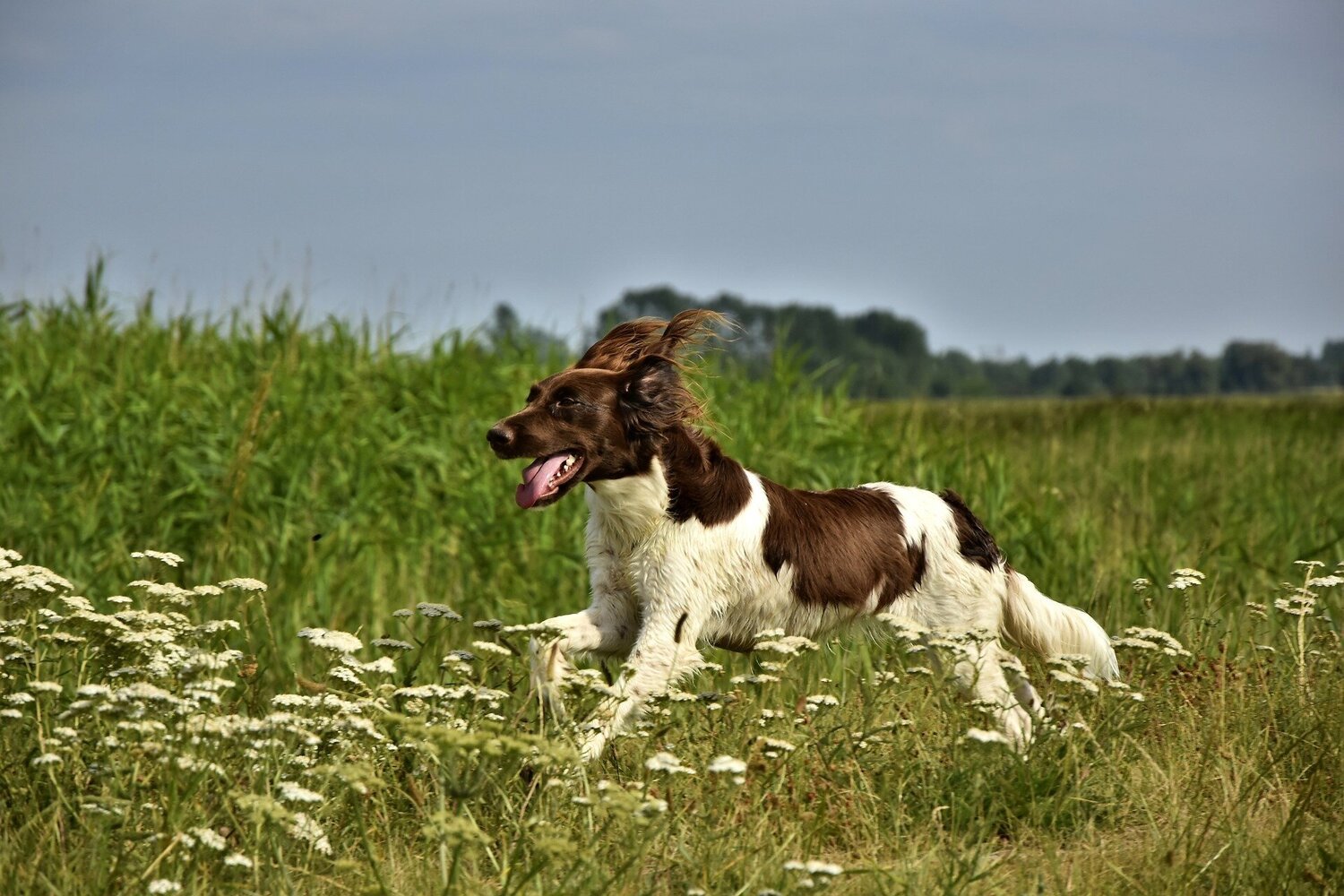Caring for a top athlete
Missy and Aleks leading their team in the early fall training – with no snow the dogs run in front of ATV’s or side-by-side machines.
Credit: Mille Porsild / milleporsild.com
Most competitive long-distance mushing teams start training early in the fall once the days get cool, and log several thousand miles in preparation for their big race in February or March. By mid-winter, the dogs are running and camping for several days at a time out on the trail. Their time at the kennel in between training runs involves lounging in straw filled houses, wolfing down over a gallon per dog of hot raw meat soup each day, and visits to the heated workshop for massage, bodywork and paw care.
At home at the kennel, the dogs are fed twice a day. Large frozen blocks of beef, chicken, liver, and fat are chopped into 5-pound blocks (approx. 2 kg) that are thawed in buckets of steaming hot water. Kibble specially formulated with extra fat and protein is measured and added to the buckets and stirred thoroughly with a large ladle. Vitamins and minerals are also added daily. The dogs’ diets are adjusted to the temperature, training, and body condition of each dog. On an average day in the winter each dog will eat:
1 pound beef 1/4 pound turkey fat or beef fat 1/4 liver 2-3 quarts warm water 2 cups performance dog kibble
This is fed mixed up as a raw meat "soup". All of the dogs get a multi-vitamin/ mineral supplement and probiotics each day. They are also given Krill oil for the omeg-3's. Older dogs and racing dogs will have additional joint supplements and antioxidants added as needed that include MSM, Glucosamine, Yucca, and Astaxanthin, Vitamin E, and trace minerals.
Yum-yum meat snack! High water content makes it an excellent supplement and good for the teeth too.
Credit: Peter Varga / Tying Knots Art Studios – http://facebook/TyingKnotsArtStudios
On the trail, the dogs are fed a hot meal each time they stop to camp, and are also given snacks of thin frozen sliced meat and fat every few hours while running. This is great for their dental health, and also fun chewing for them.
The dogs wear booties on nearly every run. The booties are taken off while they rest, and new ones put on for the next run. Sixteen dogs, each with four paws... it can easily take 45 minutes to get your team bootied. Their nails are kept trimmed and paws are checked carefully for any cuts or abrasions. Mushers have a huge variety of ointments and liniments that can be used on the dogs’ feet. Some of the most common are Neosporin, zinc-oxide ointment, and essential oils including tea tree and rosemary.
Carefully inspecting each paw, the surface of the pads and between the toes is the first step in the all-important paw care.
Credit: Peter Varga / Tying Knots Art Studios – http://facebook/TyingKnotsArtStudios
Regular soundness exams ensure that the dogs are healthy to race and train. Any muscle or joint stiffness or soreness is treated with essential oil massages and gentle myofascial release. Some of the most popular essential oils used on sled dogs are Wintergreen, Rosemary, and Lavender. Heat packs are often applied to stiff muscles after a massage. Other common treatments include laser, acupuncture, and chiropractic care.
For the mushers, the days run together in an unending blur of wagging tails, dog hair, and frozen gloves. Hundreds of miles to be mushed each week on top of the meticulous care that each individual dog requires makes for an all-consuming and intense lifestyle that truly is all about the dogs.
Contributor Jen Seavey writes with unique insight from her decade of involvement in the Dallas Seavey kennel. With the kennels four Iditarod Championship and countless other achievements in the sport, she is an accomplished dog trainer, kennel manager and sled dog caretaker.


































